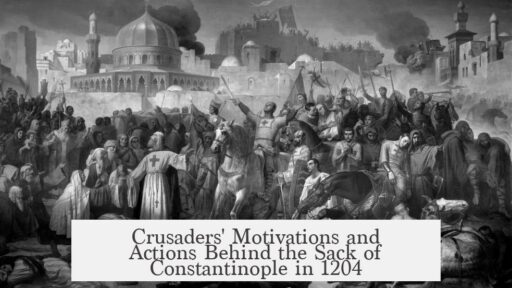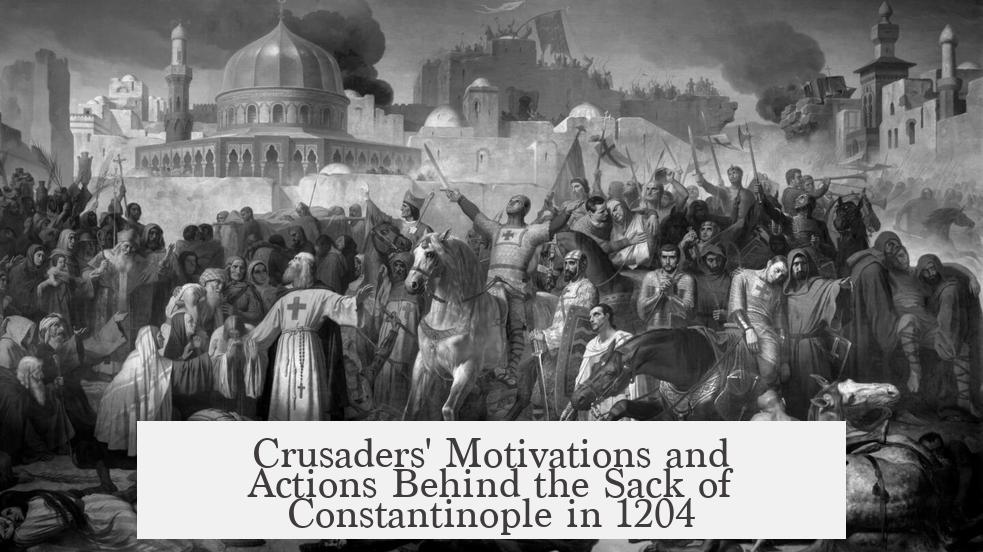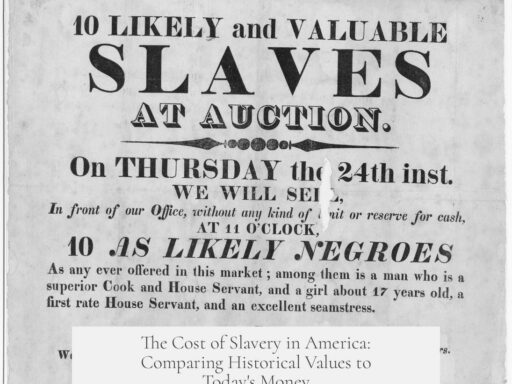The crusaders sack Constantinople in 1204 primarily due to a combination of financial pressures, Venetian influence, Byzantine internal politics, and shifting power dynamics within Christian Europe. These factors culminate in a breach between Western crusaders and the Byzantine Empire, leading to a devastating attack on the city.
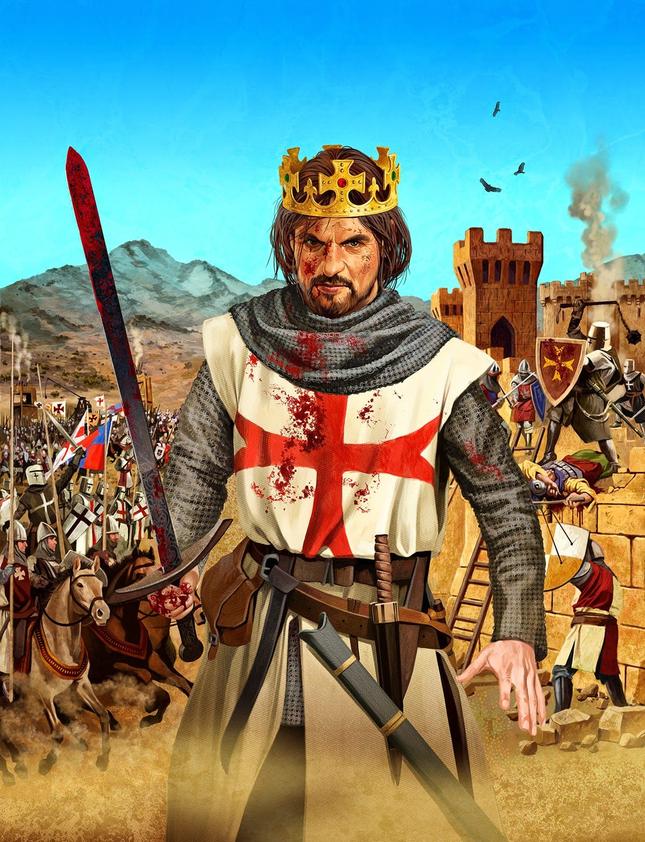
The crusaders originally intend to reach the Holy Land but face a shortage of funds and ships. Venice builds the Crusader fleet but expects repayment that the crusaders struggle to provide. The indebted crusaders strike a deal with Venice to help recapture territory along the Adriatic coast as compensation. This delays their journey and entangles them in regional politics.
During this time, crusaders meet Alexios Angelos, the son of a deposed Byzantine Emperor. He promises substantial rewards, including large sums of money, military support, and religious concessions such as submission to the Pope, which would end the East-West Christian schism and grant Venice exclusive trade privileges within the empire. These promises motivate the crusaders to assist in restoring Alexios’s family to the throne.
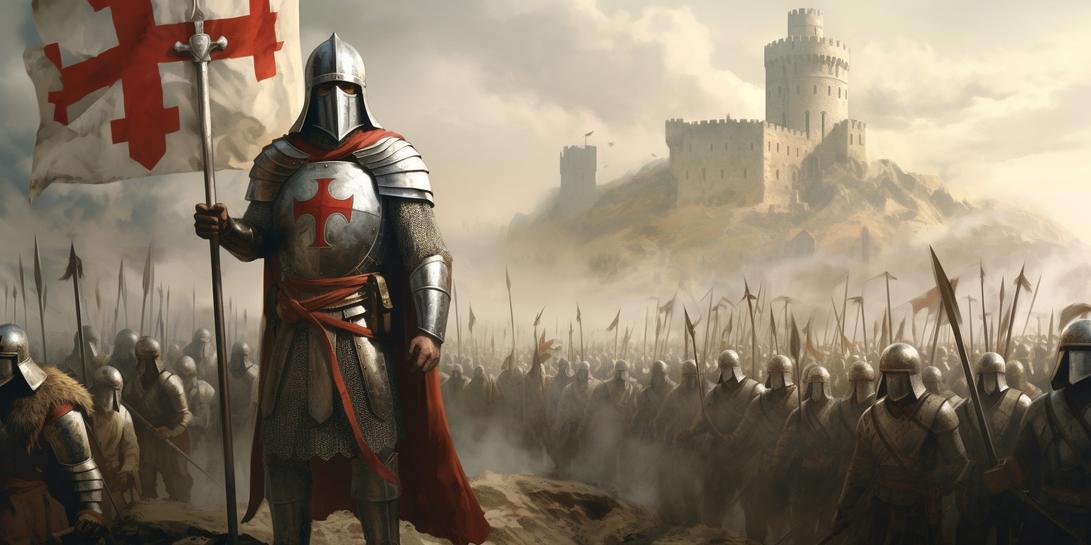
Alexios IV becomes co-emperor but faces resistance from the local populace. The Byzantine citizens oppose Latin domination, especially under Latin Christian influence, which they consider barbaric. Tensions escalate, and a popular uprising overthrows and murders Alexios IV. This violent upheaval removes the prospect of the promised payments and support to the crusaders.
Facing broken promises and no chance to recoup expenses, the crusaders decide to siege Constantinople. They exploit the political instability and relatively weaken city defenses. The attack succeeds swiftly; crusaders sack the city thoroughly, seizing treasures including religious relics, artworks, and wealth accumulated over centuries. The sack devastates the Byzantine Empire’s capital, undermining its political and economic strength.
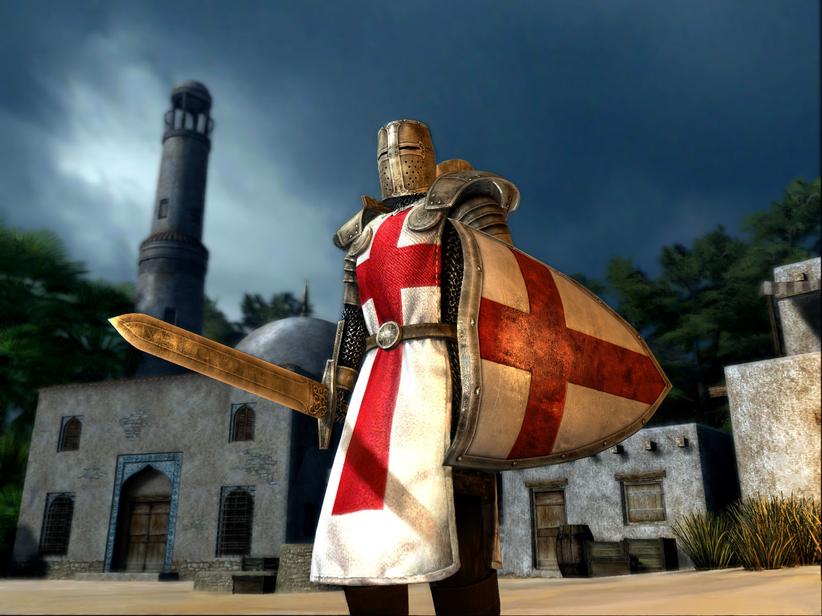
Venice also gains a great deal from the sack. Its commercial interests expand significantly, receiving privileged access to Byzantine trade routes and holdings. The Venetians had long sought to dominate Adriatic and Eastern Mediterranean commerce, and their alliance with the crusaders helps secure this goal.
Moreover, the sack reflects deeper historical and cultural tensions. The Byzantine Empire and Western Europe have a history of religious and political rivalry. Though both sides are Christian, Orthodox Byzantines and Latin crusaders see each other as rivals. The crusaders, inheriting a Roman Catholic identity from Western Europe and largely tracing descent from groups that once invaded Roman territories, view the Byzantine rulers as foreign and inferior. The sack exemplifies these long-standing conflicts intersecting with immediate political and financial concerns.
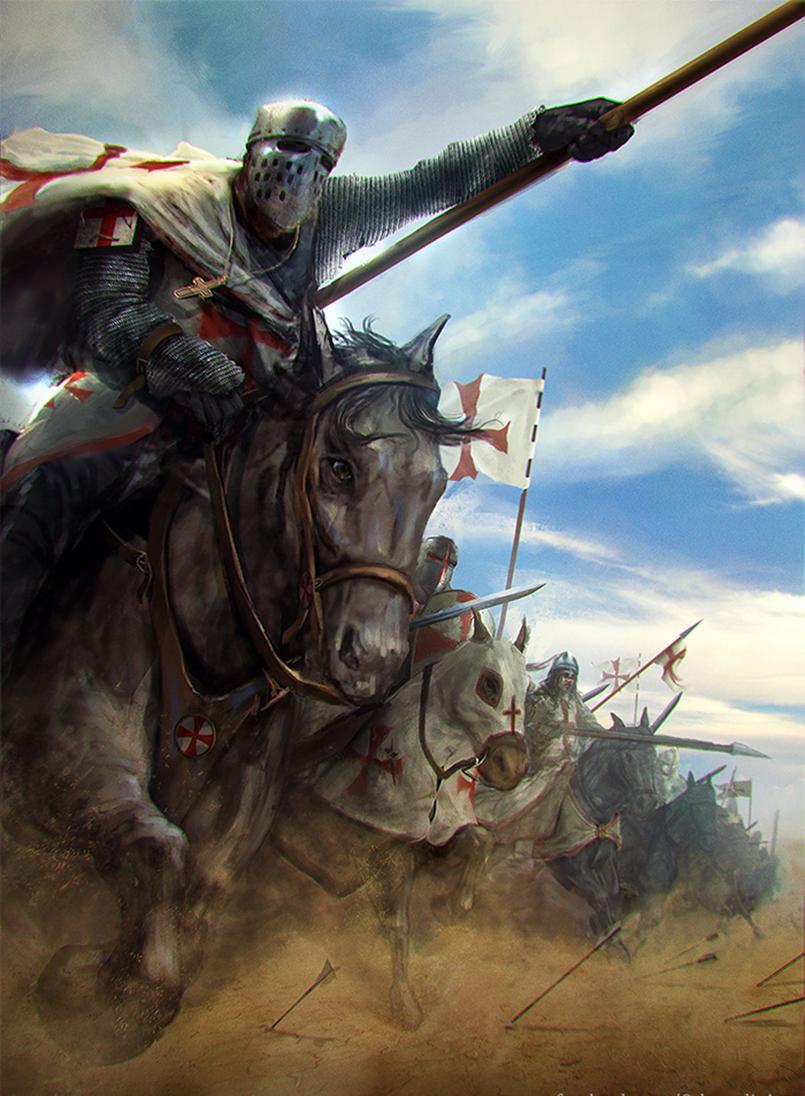
The crusade’s diversion to Constantinople thus stems from intertwined motives:
- Financial hardship: Inability to pay Venice and themselves leads crusaders to seek wealth by force.
- Venetian ambitions: Venice leverages new power by redirecting the crusade toward its own economic advantage.
- Byzantine political instability: The deposition and murder of Emperor Alexios IV disables promised payments and support.
- Religious rivalry: Tensions between Orthodox Byzantines and Latin crusaders exacerbate conflict.
The sack directly weakens Byzantium’s military and political status, paving the way for Latin occupation and fragmentation of the empire. It also deepens the schism between Eastern and Western Christianity lasting centuries.
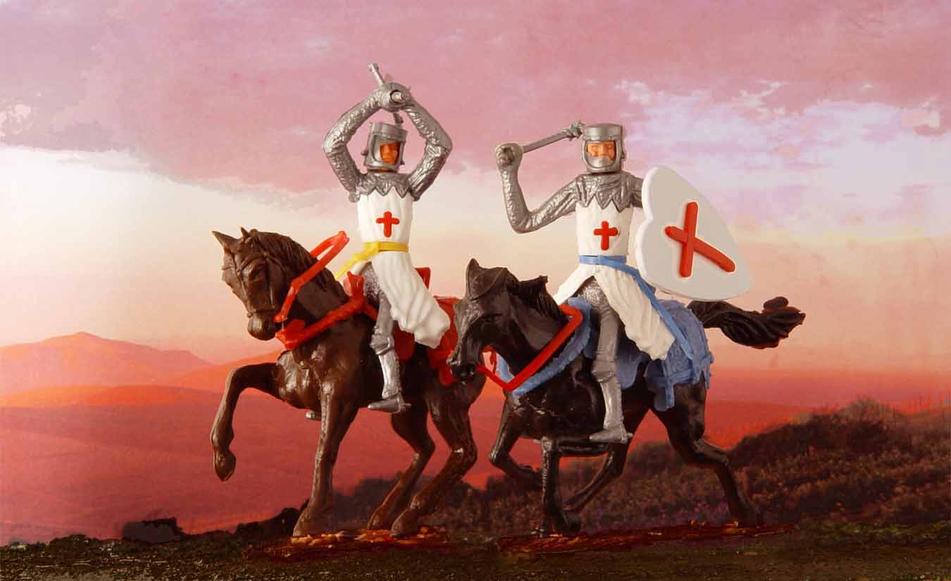
| Factor | Explanation |
|---|---|
| Debt to Venice | Crusaders could not pay for ships; Venice demands compensation. |
| Alliance with Alexios IV | Promises of money and submission to papal authority motivate crusaders. |
| Byzantine Uprising | Local revolt kills Alexios IV, breaking obligations to crusaders. |
| Venetian Influence | Venice steers crusade toward its commercial and political goals. |
| Religious and Cultural Conflict | Orthodox and Latin Christians harbor longstanding mistrust. |
Key points:
- Financial troubles and lack of resources redirect crusaders.
- Deal with Byzantine prince promises rewards and church submission.
- Popular revolt removes Byzantine emperor, ending payments.
- Venetian economic ambitions shape crusaders’ decisions.
- Religious divisions intensify hostilities between Latins and Byzantines.
Why Did Crusaders Sack Constantinople in 1204?
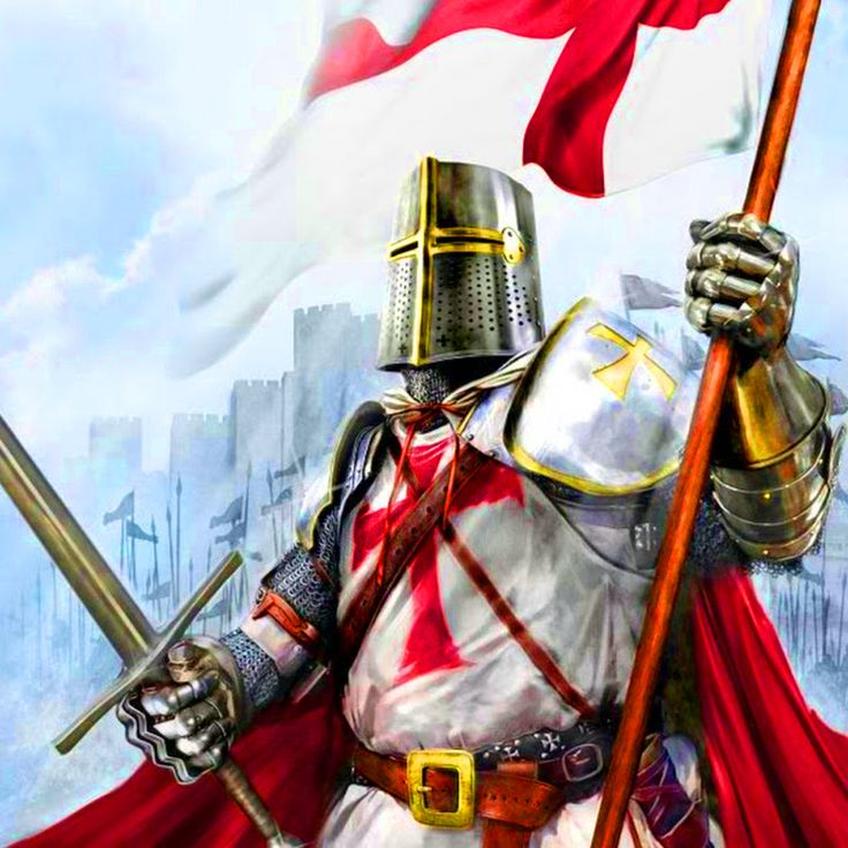
The Crusaders sacked Constantinople in 1204 because of a toxic cocktail of financial woes, Byzantine political chaos, Venetian interests, and old Christian rivalries. Simply put, they didn’t get paid, got fed up, and decided to take matters into their own hands—with a looting spree thrown in.
Let’s unpack this wild event that stunned the medieval world and still echoes in history today.
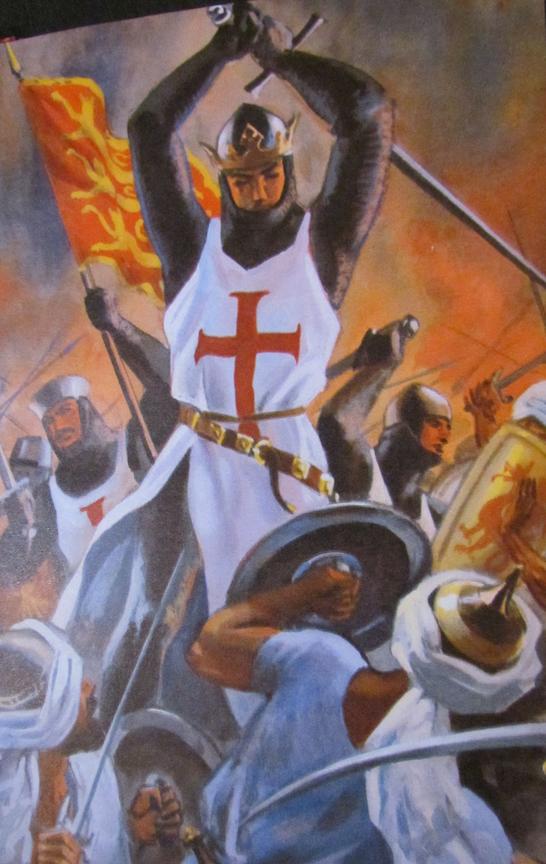
Money Talks (and Sometimes Roars)
The financial story is essential here. The Crusaders owed a massive debt to the Venetians, who had built the fleet to ferry them to the Holy Land. However, the turnout for the Crusade was smaller than expected. This shortfall meant the Crusaders couldn’t afford to pay for the ships. Guess who owned those ships? Yep, the Venetians.
The Venetians, ever the shrewd businessmen, made the Crusaders a deal they couldn’t refuse: help us recover some territories along the Adriatic coast, and your debt will be forgiven. The Crusaders, broke and desperate, agreed and rampaged through modern-day Croatia and Bosnia.
Byzantine Politics: A Perfect Storm of Betrayal and Confusion
Here’s where things get juicier. The Crusaders ran into Alexios Angelos, son of a deposed Byzantine emperor. His father had been ousted by his own brother—talk about messy family drama! Alexios promised buckets of gold, military support, and even a submission of the Byzantine Empire to the Pope, hoping to end the East-West Christian schism.
Oh, and Venice was promised a monopoly on trade within the Empire—a big deal since Byzantium controlled key parts of the Silk Road. The Crusaders were salivating. The plan? Restore Alexios’ father to the throne, get paid, and continue the journey to the Holy Land.
But it didn’t quite work out. Emperor Alexios III, the uncle, was deposed, and the new Emperor—Alexios IV, the Crusaders’ puppet—couldn’t keep his promises. To add insult to injury, a local uprising smashed this fragile arrangement. The citizens hated these Latin Crusaders and their papal overlords, revolting and killing the newly crowned emperor. News of the rebellion and broken deals reached the Crusaders who were camped outside. Their patience snapped.
Pearl Harbor? No, Pillage Instead
Without the gold and support they expected, the Crusaders decided, “If we aren’t getting paid, we’ll take what’s ours.” They stormed Constantinople. The defenses fell surprisingly fast. The city, a jewel of the medieval world, was brutally sacked. Everything valuable—holy relics, treasures, artworks—was stolen or destroyed.
This wasn’t just a raid; it was a catastrophic breach between Christian brethren. The Greek Orthodox Byzantines and the Latin Crusaders, despite sharing Christian faith, were ancient rivals. The Crusaders were descendants of barbarians who’d once toppled Rome’s western half, now donning Roman names but still culturally different. The shadow of that history magnified tensions.
Power Plays Beyond the Battlefield
And let’s not forget the bigger picture: the Crusades revolved around power centers. The Vatican often led the charge, but behind the scenes, other European entities competed for influence. Seizing Constantinople not only enriched the Crusaders and Venetians but also shifted power balances in Europe and the Mediterranean. The Latin Empire was born from this conquest, reshaping regional politics for decades.
Lessons and Quirks from This Historical Drama
- Financial desperation can wreck noble quests faster than any battle.
- Political promises made under duress rarely hold up—especially in volatile Byzantine courts.
- Venetian commercial savvy heavily influenced medieval geopolitics, sometimes with ruthless efficiency.
- Deep-rooted cultural and religious divides paved the way for betrayal rather than brotherhood.
So, why did Crusaders sack Constantinople in 1204? Because they were stuck between unpaid debts, shaky political alliances, and the hunger for power and wealth. When all plans failed, the Crusaders turned on the greatest Christian city of the East.
This event marks one of history’s most striking examples of “friends” turning foes under pressure—and of money, power, and broken promises rewriting the course of empires. If you think modern politics is messy, try medieval geopolitics with Crusaders, Venetians, and Byzantine princes all vying for gold and glory.
Curious to dive deeper? Explore how this tragedy permanently altered the Byzantine Empire and reshaped Europe’s medieval landscape. History sure has a sense of irony: crusaders arriving to reclaim the Holy Land wind up conquering one of Christianity’s wealthiest cities instead.
